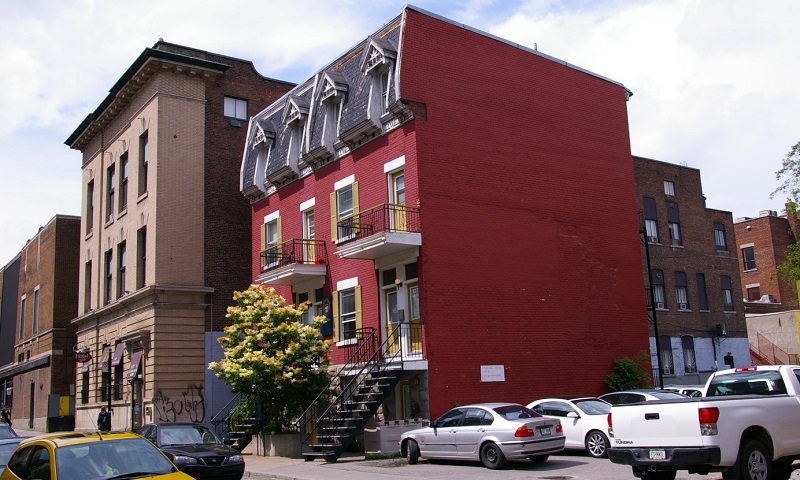
Social Housing with Community Support, or supportive housing, is a response to the challenges faced by those confronted with homelessness and other serious or persistent issues, including addiction, mental illness or HIV/AIDS.
Since 2008, Dianova Canada has endeavoured to address the housing needs of those who are homeless or at risk of homelessness. The practices implemented by Dianova have two primary objectives: to provide safe, secure, permanent and affordable housing to low-income individuals who would otherwise have difficulty finding decent living conditions; and to help these people overcome their problems and help them achieve a successful reintegration through community support services.
This overall strategy permitted to participate in the implementation of two of the Sustainable Development Goals (SDGs): SDG10 to reduce inequality within and among country, and SDG11 to make cities and human settlements inclusive, safe, resilient and sustainable.
When we think of the homeless, we tend to imagine an alcoholic in extreme precariousness, lying on a park bench. But these chronically homeless individuals represent only the visible part of the phenomenon. There are other situations that force people into homelessness. There is situational homelessness, more frequent but less visible, which can be defined as the status of being forced to live without proper housing, due to a specific emergency. The people concerned typically become homeless for a while before they can manage to renew social contacts and find a new place to live. Lastly, there is cyclical or episodic homelessness, i.e. when a person repeatedly falls in and out of homelessness.
Homelessness can never be fully illustrated. It is a multifaceted marginalization and exclusion process which may lead some people to the streets (according to Montreal’s first official homelessness census, 3,016 homeless people were living in the city in March 2015, 10 per cent of whom were aboriginal). Primarily, there are structural. causal factors, i.e. poverty, unemployment and the lack of affordable housing. From a basic economic viewpoint, it must be emphasized that homelessness is mainly due to poverty and unemployment. The poor simply can’t afford adequate housing!
There are also personal factors that lead to homelessness, such as family conflict, sexual abuse, violence, etc. In addition, there are all the circumstances that can weaken the individuals and contribute to homelessness or worsen people’s living conditions, including physical and mental health problems, substance abuse, including alcohol and other drugs, and pathological gambling.
To address this issue, Dianova opened a single-room occupancy residence in downtown Montreal in 2008. The Saint-André rooming house has 20 fully-equipped, individual rooms and two additional rooms for community services. At the end of 2012, the organization acquired a second rooming house in order to extend the program to Hochelaga, one of Montreal’s most populated boroughs. After a full year’s renovation works, the Adam rooming house opened in the spring of 2014, with a 21-person capacity.
Supportive housing is a combination of housing and social and community services intended as a cost-effective way to help individuals live more stable lives and to help them reintegrate into society. It is believed to be an adequate response to the complex challenges faced by those confronted with homelessness and who also have low incomes and serious or persistent issues that may include addiction, mental illness, HIV/AIDS or any other challenges likely to hinder their integration back in society.
Both projects are aimed at single people, over 18, homeless or at risk of homelessness, in a situation of extreme precariousness and without any possibility of access to private homes because of a lack of sufficient income. Tenants who enter the project are subsidized, meaning that their contribution is capped at 25% of their income. For example, if a person has a $ 800 monthly income, their rent will not exceed $200 (the average rent for a room in the same area is $ 450). The municipal housing service pays Dianova the difference. It is a stable, well-defined financial framework, sufficient to carry out the organization’s mission.
In Dianova’s housing model, people have the right to stay as long as they wish. One must understand that the rooms provided are quite comfortable and well-equipped, but they are just single rooms with communal showers and restrooms. This means that should the conditions of existence of people improve sufficiently, they will naturally tend to move to other types of accommodation.
As the housing shortage is growing worse by the day, housing projects owned and run by non-profit organisations could represent a solution for those wishing to quit street life and those who, although not homeless, simply cannot afford to pay the full amount of today’s rents in the city of Montreal.
 Welcome to the United Nations
Welcome to the United Nations